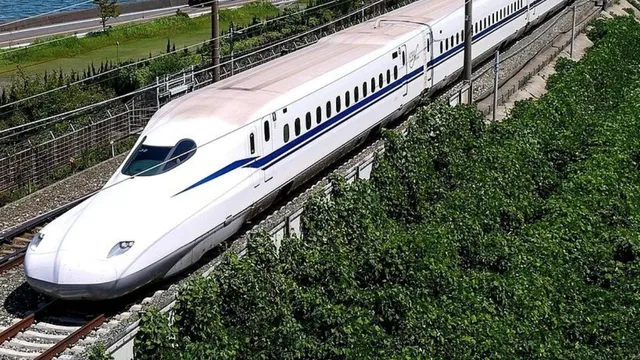- By Sahelee Rakshit
- Thu, 13 Feb 2025 07:13 PM (IST)
- Source:JND
Soon train travel from Hyderabad to Bengaluru and Chennai may be as quick as flying. By constructing two high-speed rail tracks, the Centre hopes to reduce travel times by about ten hours. Trains are anticipated to reach 320 kmph. When these high-speed trains are operational, they would transport people from Hyderabad to Bengaluru in only two hours and to Chennai in 2 hours and 20 minutes, according to a Times of India report.
Currently, flights from Rajiv Gandhi International Airport to Bengaluru and Chennai take approximately one hour and fifteen minutes and one hour and twenty minutes, respectively. However, adding airport transfers to city centres increases the overall journey time to 2-3 hours, which is equivalent to the planned rail travel durations.
The Hyderabad-Chennai corridor is scheduled to be 705 km long, while the Hyderabad-Bengaluru length will be 626 kilometres. RITES Limited, a public-sector initiative and engineering consultancy, has requested proposals for the final location survey, which will include a Detailed Project Report (DPR), alignment design, traffic projections, and technical documentation. The survey and evaluation are expected to cost Rs 33 crore.
Unlike traditional rail tracks, which accept both freight trains and passenger services, such as Vande Bharat, these new corridors would be reserved solely for high-speed trains. The architecture is similar to the high-speed corridor between Mumbai and Ahmedabad, which is now being developed for bullet train operations. A senior South Central Railway (SCR) official stated that, while the Mumbai-Ahmedabad project began feasibility studies in 2015 and construction in 2021, with completion scheduled in 2028, the Hyderabad routes may take up to 15 years to complete.
According to the tender, the chosen company will carry out geological mapping, remote sensing research, drilling for large bridges and viaducts, and laboratory testing of rock and soil samples along both routes. The corridors will initially run at 320 kmph, but they are designed to handle speeds of up to 350 kmph. Alongside the current wide gauge railway routes, elevated tracks with future multi-tracking possibilities will be built.

